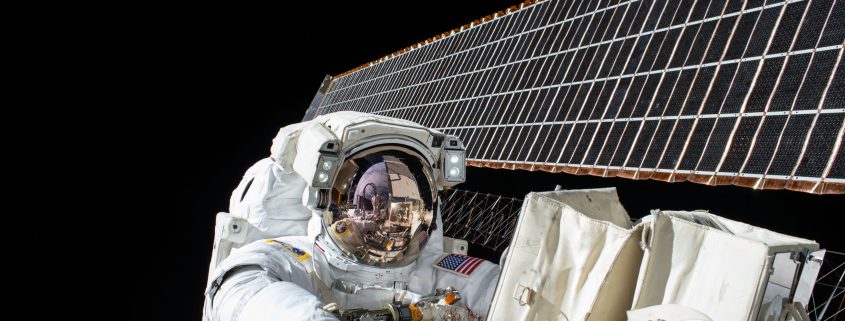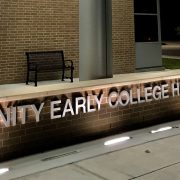NASA Is Recruiting Astronauts . . . what will that mean for your students?
NASA is currently accepting applications from young people who would like to become astronauts. If you’re interested, you have until March 2 to apply. You can find all the information you need on the special NASA webpage that explains the program.
How difficult is it to be chosen for the astronaut training program? To quote from information on the NASA site . . .
“The requirements for Astronaut Candidates are a bachelor’s degree from an accredited institution in engineering, biological science, physical science, or mathematics. Quality of academic preparation is important. Degree must be followed by at least 3 years of related, progressively responsible, professional experience or at least 1,000 hours of pilot-in-command time in jet aircraft . . . Additional requirements include the ability to pass the NASA long-duration space flight physical, which includes the following specific requirements: Distant and near visual acuity must be correctable to 20/20 in each eye, blood pressure not to exceed 140/90 measured in a sitting position, and the candidate must have a standing height between 62 and 75 inches.”
Needless to say, the training program for individuals who are admitted is challenging. Trainees learn how to survive in water for extended periods of time, how to adapt to low or zero-gravity environments, as well as a variety of engineering skills. And not all the astronauts who pass the training program will ever be sent into space.
Nonetheless, NASA expects tens of thousands of people to apply. Given the minimal odds of being accepted into the program, why are we even writing this post today?
One big reason is that the allure of becoming an astronaut causes many young students to become interested in science. Can they all become astronauts someday? Of course not. But they can all pursue STEM careers, some of which support NASA and the space program.
Consider that . . .
There are currently about 50 NASA astronauts who are fully trained and prepared to go into space, but more than 17,000 people work for NASA.
So for every astronaut, there are about 350 other NASA employees. And many more non-NASA employees are working in jobs that support the space effort. They are working for NASA’s suppliers, in the U.S. Military, for security and support personnel at NASA launch sites, and in many other jobs. There are also biologists, chemists and other scientists who design experiments and projects that will be conducted in space.
NASA is like a fertilizer which, when spread across the landscape of American science and industry, promotes growth everywhere. So even though your students might not one day become astronauts, the fact that NASA is hiring astronauts is a strong indicator of the viability of pursuing STEM careers that are related to space exploration.
Remember Charles Lindbergh?
When he flew across the Atlantic, he was on a solo flight. But his mission created thousands of jobs for other people. There were people who worked in airports, journalists who wrote about him, and even composers who wrote songs about “Lucky Lindy.”
It goes to show that one high-profile job can help to stimulate job growth for thousands of other people. If you teach science-oriented students, it might be a good time to say to them, “The space program is growing . . . let’s decide where you can fit in.”
To Learn More about STEM Programs and STEM Career Options
We invite all students to explore their career options by participating in our career and college research studies. Students who complete the free career test for high school students will receive information on college and career opportunities matched to their interests.
Related Posts
Free Online AI Courses Your STEM Students Should Know About
What Are the Best STEM Jobs for Your Students to Consider?
Who Needs a Female STEM Role Model?
How to Get Burned-Out Students Excited about STEM Studies
Research on Students Who Plan to Study Computer Science in College










Leave a Reply
Want to join the discussion?Feel free to contribute!